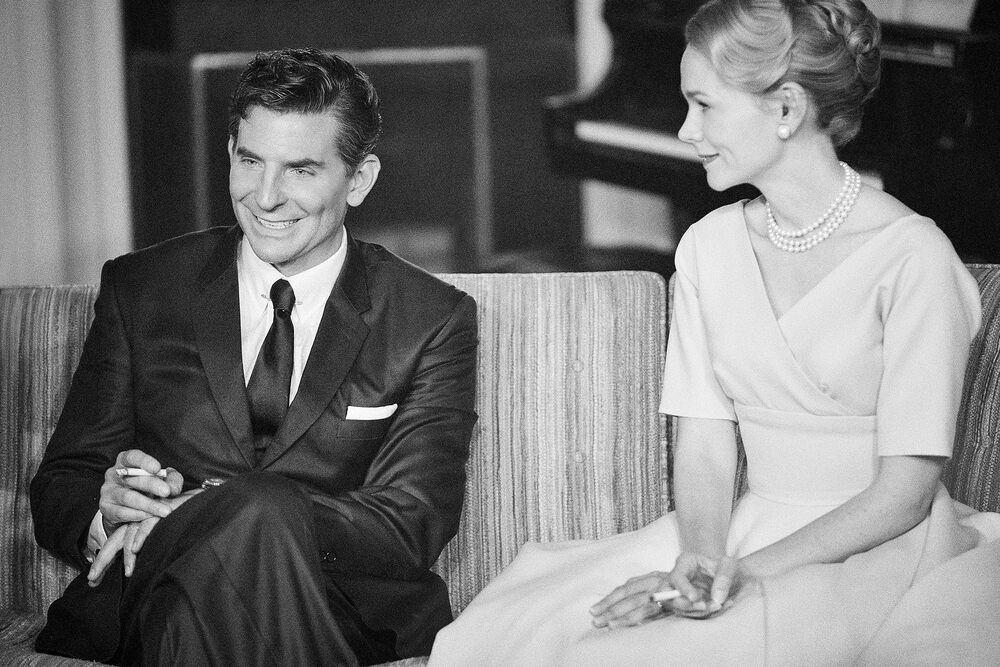Maestro

Bradley Cooper and Carey Mulligan star in MAESTRO. (Photo: Netflix)
At its core, Maestro is a powerfully bittersweet love story — but not exclusively between Leonard Bernstein and his wife.
This bold and vibrant biopic from director Bradley Cooper (A Star Is Born) is an affectionate tribute to the work and legacy of one of the greatest American composers, yet it doesn’t gloss over the hardships and personal struggles — sometimes self-inflicted — that shaped his artistic vision and creative process.
Cooper also stars as Leonard, a Jewish prodigy whose breakthrough came during the height of World War II, as a last-minute replacement conductor for the New York Philharmonic at age 25. That leads to a whirlwind rise to fame, a turbulent yet devoted marriage to Chilean actress Felicia Montealegre (Carey Mulligan), and grand successes with musicals including West Side Story.
His perpetual smile and upbeat demeanor reflect an intense passion for his music, but also conceal insecurities and lingering pain from a troubled upbringing.
Eventually, the pressures of fame and perfectionism bring his demons to the forefront, as well as his longstanding fondness for young men, even taking an assistant (Gideon Glick) as a live-in companion right under Felicia’s nose.
Amid his growing bitterness and cynicism, Leonard’s work becomes a source of solace and a coping mechanism as he alienates himself from his own family, especially Felicia, who feels suffocated. “If you’re not careful, you’re going to die a lonely old queen,” she retorts.
It would be easy to be overshadowed by Bernstein’s outgoing and workaholic reputation, although Mulligan’s richly textured performance turns the strong-willed and resilient Felicia into much more than just a sidekick.
Meanwhile, despite a heavy accent and facial prosthetics, Cooper’s audacious portrayal transcends mere mimicry of Bernstein’s speech and chain-smoking mannerisms.
He also succeeds behind the camera, staging energetic music sequences that both capture the spirit of Bernstein’s work and enliven some of the narrative transitions. It toggles black-and-white and color visuals with evocative sophistication.
Exploring the many facets of his talent and personality that are often conflicting, the uneven screenplay by Cooper and Josh Singer (Spotlight) lacks depth in spots as it skips around with the ferocity of a bombastic fortissimo.
Still, Maestro is a rhythmic and insightful portrait, punctuated by a riveting scene of Bernstein conducting in a church that exquisitely encapsulates his wizardry with the baton — if only he was as adept at navigating the crescendos in his personal life.
Rated R, 129 minutes.